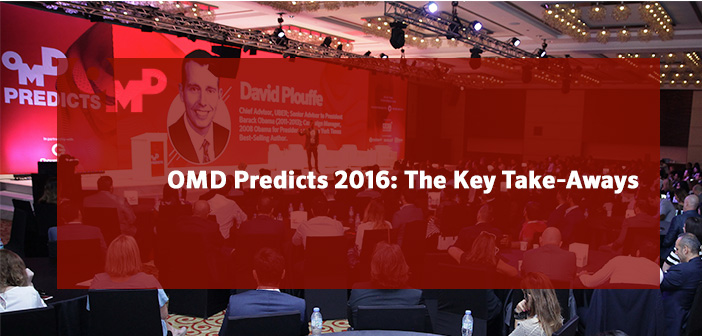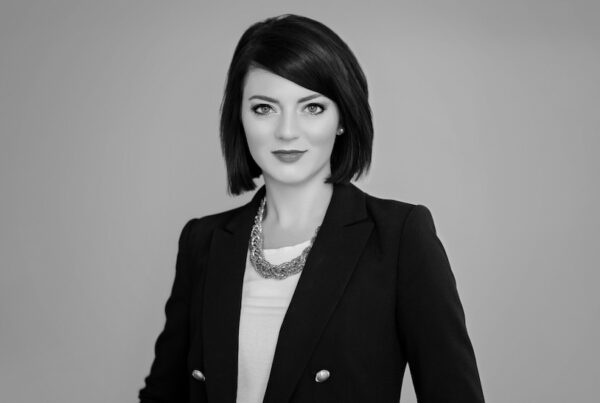News >

OMD Predicts delegates told to focus on demand segments rather than audiences

Data and technology drive demand planning and desire creation
The role of technology and data in shaping consumer journeys and behaviors, American politics and the new Kenzo commercial were some of the key points of discussion at the seventh edition of OMD Predicts. The conference, produced by marketing performance company OMD (Omnicom Media Group), welcomed an audience of over 300 regional marketing and communications delegates in Dubai yesterday. It featured world-class, industry-leading speakers who shared business-critical insights and trends shaping the future of marketing and business.
OMD UAE’s CEO, Nadim Samara, started the conversation about using data and technology to unlock better brand and business performance. “Today, each and every consumer has become much more visible, leaving ample clues for us to work with,” said Samara. “It is now up to us to understand the momentum in which data is progressing.”
Global trends analyst Sean Pillot de Chenecey spoke about the emerging sharing economy. Consumers increasing seek access to, rather than ownership of, a growing range of goods, including luxury products and real estate. “Two thirds of the world’s population are interested in sharing their services or assets for financial reward,” he explained. “Using the Internet as leverage, the sharing culture is fundamentally changing consumption from a desire and demand perspective.” He added that this also affected people’s trust in big business, now expecting choice, diversity and efficiency from their systems and brands instead.
Using his experience as manager of Barak Obama’s two successful presidential campaigns and his current role as Chief Advisor to UBER, David Plouffe elaborated on the various applications of data in demand planning today. “When we were deciding whether Obama should go to Miami or Tampa during his campaign, we could identify with data which city we were already strong in and refocus our investments accordingly,” he revealed. “At Uber, analytics come into play when addressing how we can trigger desire and remove barriers among potential consumers. With this marriage of insights and accuracy of knowing exactly what’s happening, we never have to resort to guessing.”
Jackie Hughes, a strategy director at London-based global insights consultancy, Flamingo, discussed the impacts of brand positioning from a needs versus desire framework, stressing the value of marketing from the latter. “We all need to get into the business of desire. In order to do so, we first need to understand it; you can now go online and see what people are watching, reading and posting. We can get into this space beautifully through technology today. The second thing is to create a distinctive positioning with your agency and research partners and really look at how you measure response. The last step involves thinking about content and the way you enter desire.”
Neil Hurman, OMD’s chief planning officer for EMEA, warned marketers that they are heading for a massive optimization trap if they don’t change their approach to targeting. “We need to shift priority to demand opportunities, rather than target audiences,” he argued. “We now have the opportunity to look at all individual demand segments and convert them with separate content and messaging. There is a massive new world of opportunity ahead of us and we really have to start building models that reflect data and analysis in order to tap into it. Human beings and technology are now working together in new ways.”
Two panels – featuring Shaf Butt, Jumeirah Hotels & Resorts’ regional marketing director; Rami Saad, deputy COO at Digital Media Services; Walid Hadid, OMD’s head of analytics; as well as the event’s speakers – explored the dimensions of demand and desire in more concrete terms.
Since its launch in 2007, OMD Predicts has become a must-attend event for regional marketers as a source of inspiration and knowledge on emerging trends to future-proof their strategies. This year’s conference was produced in partnership with Choueiri Group, the leading media representation group in the Middle East, lead sponsor Arabian Radio Network, sponsors Mediaquest, Nimbuzz and Meyssan Mediahouse, with the support of Exponential.


